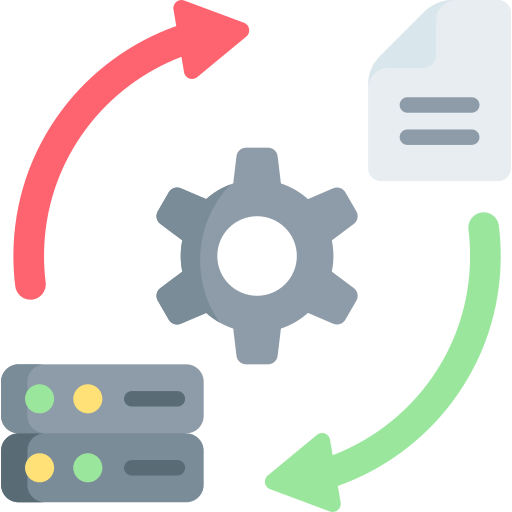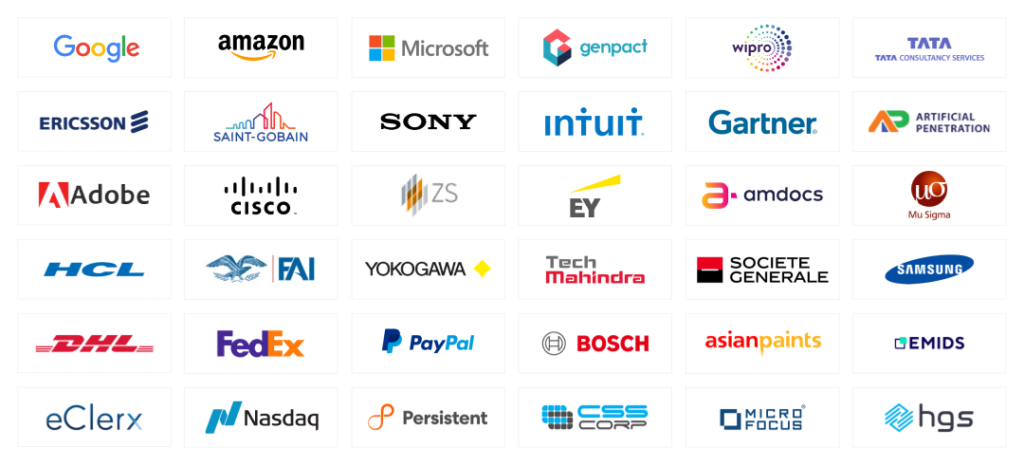Home » Cloud Computing & DevOps Expert Certification Program
Cloud Computing & DevOps Expert Certification Program
Cloud Computing & DevOps Expert Certification Program is a comprehensive program that blends the latest in cloud computing and DevOps methodologies. It’s designed to empower professionals with advanced skills for managing modern IT infrastructure effectively.
In collaboration with

Aryavart Institute Technology
- Program Duration: 6 months
- Learn from Industry Experts.
- Collaborative Learning Environment
Key Highlights

Industry-relevant skills for various roles

Comprehensive curriculum

Expert faculty with industry experience

Prestigious certification upon completion

Ongoing support and resources post-program

Industry-relevant skills for various roles

Career advancement opportunities

Transformative learning experience

Flexible learning formats
About the program
This program is designed to provide participants with advanced knowledge and practical skills in cloud computing and DevOps practices. It covers a wide range of topics, including cloud infrastructure, deployment automation, continuous integration/continuous deployment (CI/CD), containerization, and more.
Participants will have the opportunity to learn from industry experts through a combination of lectures, hands-on exercises, and real-world projects. The curriculum is carefully crafted to ensure that participants gain a deep understanding of key concepts and acquire the necessary skills to excel in today’s rapidly evolving IT landscape.
Upon successful completion of the program, participants will receive a certification that demonstrates their expertise in cloud computing and DevOps, enhancing their career opportunities in the field. With a focus on practical learning and industry relevance, this program equips participants with the tools and knowledge they need to succeed in the dynamic world of cloud computing and DevOps.
Transitioning to a new career
Antoine Dubois, a software developer with proficiency in programming languages and application development, aims to transition into the role of a Cloud Solutions Architect. With the Cloud Computing & DevOps Expert Certification, Antoine will develop skills in designing and implementing cloud-based solutions using platforms such as AWS, Azure, or Google Cloud.
Software Developer
Camille Lefevre, currently working as a System Administrator, seeks to become a DevOps Engineer. With the Cloud Computing & DevOps Expert Certification, Camille will learn about software development practices, automation tools, and collaboration methodologies to streamline the software development lifecycle and improve operational efficiency.
Camille Lefevre
Julien Martin, a Network Engineer experienced in managing IT infrastructure, aims to specialize in cloud networking. With the Cloud Computing & DevOps Expert Certification, Julien will gain expertise in configuring and optimizing network resources in cloud environments, including virtual private clouds (VPCs) and software-defined networking (SDN).
Julien Martin
Sophie Laurent, a QA Engineer focused on ensuring software quality, desires to transition into a DevOps Quality Assurance Specialist role. With the Cloud Computing & DevOps Expert Certification, Sophie will integrate quality assurance practices into the DevOps pipeline, including automated testing and continuous monitoring.
Sophie Laurent
Maxime Girard, an experienced Project Manager, aims to lead cloud-related projects within his organization. With the Cloud Computing & DevOps Expert Certification, Maxime will develop skills in managing cloud migration initiatives, coordinating cross-functional teams, and ensuring the successful delivery of cloud-based solutions.
Maxime Girard

Professional Growth and Development

Increased Opportunities and Advancement

Alignment with Personal Goals and Values

Adaptability and Resilience:
Who Can Apply for the Course?
- IT professionals looking to advance their careers in cloud computing and DevOps.
- Individuals from non-technical backgrounds interested in transitioning to a career in technology.
- Students or recent graduates seeking to gain specialized skills in cloud computing and DevOps.
- Entrepreneurs or business owners aiming to understand how cloud technologies can benefit their organizations.
- Professionals from related fields, such as software development or system administration, looking to expand their expertise into cloud computing and DevOps.

Roles That DevOps and Cloud Computing Professionals Can Fulfill
DevOps Engineer
DevOps Engineers streamline software development and deployment by automating processes and improving collaboration between development and operations teams.
Cloud Architect
A Cloud Architect designs and implements cloud computing solutions for businesses, ensuring they are scalable, secure, and reliable.
Site Reliability Engineer (SRE)
An SRE ensures a company's systems run reliably by blending software engineering and operations skills to design stable, scalable solutions.
Cloud Operations Engineer
A Cloud Operations Engineer oversees cloud infrastructure, ensuring smooth, secure, and efficient operations. They monitor performance, troubleshoot issues, and optimize for reliability and scalability.
Cloud Consultant
A Cloud Consultant helps businesses choose and optimize cloud services tailored to their needs, ensuring efficient and cost-effective use of cloud technology.
DevOps Manager/Leader
A DevOps Manager/Leader guides teams in automating and improving software development and deployment processes, fostering collaboration between departments for better productivity and quality.
Skill Covered
Linux
AWS DevOps
AWS
Python
DevOps
Microsoft Azure
Cloud Migration
AWS Big Data
Data Virtualization
Azure Data Factory
Tools Covered









Curriculum
- Lesson 1: Introduction to Cloud Computing & DevOps
- Lesson 2: Overview of AWS & Azure
- Lesson 3: Basics of Linux for Cloud Operations
- Lesson 4: Introduction to Python for Automation
- Lesson 5: Deep Dive into AWS Services
- Lesson 6: Deep Dive into Azure Services
- Lesson 7: Server and Application Virtualization
- Lesson 8: Data Migration Strategies and Resilience in the Cloud
- Lesson 9: Principles of DevOps
- Lesson 10: CI/CD Pipelines with Jenkins
- Lesson 11: Configuration Management with Ansible
- Lesson 12: Introduction to Containerization with Docker
- Lesson 13: Container Orchestration with Kubernetes
- Lesson 14: Infrastructure as Code with Terraform
- Lesson 15: Advanced CI/CD with GitLab CI
- Lesson 16: Monitoring and Logging in DevOps Environments
- Lesson 17: Designing Cloud Architectures for Scalability
- Lesson 18: Cloud Security Best Practices
- Lesson 19: DevSecOps: Integrating Security into DevOps Pipelines
- Lesson 20: Advanced Networking and Load Balancing in the Cloud
- Lesson 21: Advanced Cloud Services and Innovations
- Lesson 22: Big Data Analytics in the Cloud
- Lesson 23: Cloud-native Application Development
- Lesson 24: Capstone Project: Design and Implement a Cloud-native Application with DevOps Practices
Are you interested in this program? Reserve your spot now!
All fields are required to be filled*
Projects
You’ll engage in various projects to enhance your proficiency in sought-after technologies, gaining valuable industry experience in the process.
Develop and implement a robust disaster recovery (DR) strategy for an existing Azure environment to ensure minimal downtime and data loss in the event of a disaster.
Design, deploy, and manage a containerized application using Azure Kubernetes Service (AKS). Ensure the application is scalable, secure, and resilient.
Create a scalable and secure storage solution in Azure that meets the diverse needs of an enterprise application. This includes deploying different types of Azure storage accounts, configuring data access, and ensuring data redundancy and security.
As an Azure engineer, your task is to configure and manage Azure Active Directory (Azure AD) to facilitate secure identity and access management for Azure resources and applications.
Develop, deploy, and optimize a data warehouse solution using Azure Synapse Analytics. The solution should handle data integration from multiple sources, ensure data security and governance, and optimize for query performance.
Placement Target Companies

Admission Details
The application process involves three straightforward stages. Admission offers will be extended to chosen applicants following evaluations by the interview panel. Successful candidates will receive notifications via email and phone, and they can secure their positions by paying the admission fee.

STEP 1: Submit Application
Please provide some information about yourself and explain your interest in joining this program.

STEP 2: Application Review
A selection committee will identify candidates for further consideration based on their application.

STEP 3: Admission
Chosen candidates will receive notifications within 1-2 weeks.
Cloud Computing & DevOps Expert Certification Program
Total Admission Fee
€ 838
- Transparent pricing structure with no hidden costs.
- Affordable options to suit various budgets.
- Flexible payment plans available for convenience.
- Comprehensive curriculum.
- Easy zero-cost EMI.
- Dedicated support.
Frequently Asked Questions
Your certificate will be issued electronically and sent to your registered email address upon successful completion of the program.
This course offers a comprehensive curriculum, hands-on training, expert-led sessions, and certification upon completion, all of which are valuable assets for advancing your career in cloud computing.
If you miss a lecture, recordings will be provided for review, and you can catch up with the material at your convenience. Additionally, you can reach out to the instructor or support team for any clarifications.
Upon completion of the program, you will be eligible to take certification exams from recognized bodies such as AWS, Microsoft Azure, or other relevant organizations, depending on the course content.
Our refund policy allows for a full refund within a specified timeframe if you decide to withdraw from the program. Please refer to the program terms and conditions for detailed information on our refund policy.
Yes, we offer a batch deferral option for students who are unable to continue with their current cohort. You can defer your enrollment to a future batch subject to availability and program terms.

Design, deploy, and optimize a scalable, high-availability web application using various Azure services including Azure App Service, Azure SQL Database, and Azure Virtual Network. Additionally, implement security best practices and ensure the system is cost-efficient.